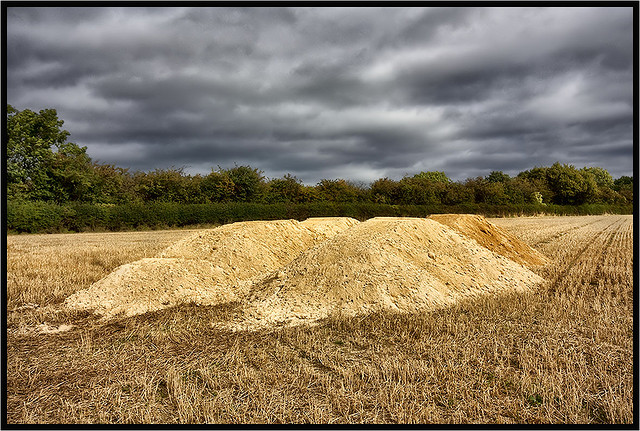
This article is a list of common items that can be used as an organic fertilizer. But first, a note on fertilizer and why it’s important.
What Is Fertilizer?
When plants grow, they take certain nutrients out of the soil to help them. A fertilizer is anything that replenishes the soil with some or all of these nutrients, to keep the soil supplied with the nutrients the plants need to continue living and growing.
What Nutrients Are Found In Fertilizer?
Plants need 13 essential nutrients to live, grow, and reproduce. Here they are.
Primary Nutrients (needed in large amounts):
Nitrogen (N)
Phosphorous (P)
Potassium (K)
Secondary Nutrients (needed in smaller amounts):
Sulfur (S)
Calcium (Ca)
Magnesium (Mg)
Micronutrients (needed in trace amounts):
Zinc (Zn)
Iron (Fe)
Copper (Cu)
Manganese (Mn)
Boron (B)
Molybdenum (Mo)
Chlorine (Cl)
You need to have your soil tested if you wish to determine your soil nutrient levels.
Also read: The Mittleider Gardening Method: Answers to All of Your Questions
Common Materials That Can Be Used As Organic Fertilizer
Here’s a list of different things that can be used as an effective fertilizer:
Composted Material: The best organic fertilizer you can supply your garden with comes from having a compost heap and consistently supplying it with varied organic matter. A typical compost heap will produce fertilizer rich in nitrogen, potassium and phosphorus, as well as supply magnesium, calcium, and many trace nutrients. To learn more about composting, read composting 101 and 7 Tips For Making And Using Compost In The Garden.
Earthworm Compost: Earthworms break down organic material, and leave a fantastic organic fertilizer as a by product. Worm composts will break down your kitchen scraps quicker than regular composts, and supply you with a top-of-the-line fertilizer.
Rabbit Droppings: Rabbits produce the best ready-to-use fertilizer of all the household animals, and have the highest nitrogen content. Their droppings are small, compact and odorless, so handling them shouldn’t be too much of a mess.
Chicken Droppings: Chickens produce a good fertilizer as well.
Fish Tank Water: Used fish tank water contains lots of nitrogen, and makes a great organic fertilizer.
Seaweed: Seaweed will supply you with a fertilizer high in potassium. Put in a container with water, seal it and let it decompose over 2 months. The end result will be a helpful (and somewhat fishy smelling) fertilizer.
Egg Shells: Egg shells are 90%+ calcium carbonate, also known as “lime”. Many plants require calcium for their root structure, pulling it from the soil. Adding crushed (and then powdered with a blender) egg shells to the soil will help replenish it.
Fireplace Ash: Fireplace ash is rich in potassium and calcium carbonate. You can sprinkle and then work it into your soil. It will increase the alkalinity of your soil.
You can also scatter crushed egg shells around plants that are being eaten by snails or slugs, to make it difficult for them to move through the area.
Coffee Grounds: Coffee grounds are rich in nitrogen, potassium and magnesium. Dry them in the oven, and then scatter lightly through garden. They will increase the acidity of your soil.
Pine Needles: These will increase the acidity of your soil as well.
Epsom Salt: Epsom salt will add magnesium and sulfate to your soil. Roses, tomatoes and potatoes all require magnesium.
Vinegar: If you really want to increase the acidity of your soil quickly, vinegar is the way to go. Dilute greatly (use 1 tablespoon for every gallon of water), and add to the soil. Make sure the vinegar doesn’t touch your plants, as the acid may destroy the cuticles of the plants, causing them to lose their moisture.
Post by John Miler
Self-sufficiency and Preparedness solutions recommended for you:
The Lost Ways (The vital self-sufficiency lessons our great grand-fathers left us)
Backyard Liberty (Obama’s hidden agenda: more than just your guns…)
Survival System (Learn The 7 Secrets Every Family Must Know To Survive Any Disaster Or Crisis)
Food for Freedom (If I want my family to survive, I need my own food reserve)


